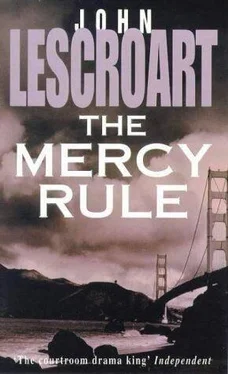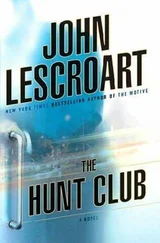John Lescroart - The Mercy Rule
Здесь есть возможность читать онлайн «John Lescroart - The Mercy Rule» весь текст электронной книги совершенно бесплатно (целиком полную версию без сокращений). В некоторых случаях можно слушать аудио, скачать через торрент в формате fb2 и присутствует краткое содержание. Жанр: Триллер, на английском языке. Описание произведения, (предисловие) а так же отзывы посетителей доступны на портале библиотеки ЛибКат.
- Название:The Mercy Rule
- Автор:
- Жанр:
- Год:неизвестен
- ISBN:нет данных
- Рейтинг книги:5 / 5. Голосов: 1
-
Избранное:Добавить в избранное
- Отзывы:
-
Ваша оценка:
- 100
- 1
- 2
- 3
- 4
- 5
The Mercy Rule: краткое содержание, описание и аннотация
Предлагаем к чтению аннотацию, описание, краткое содержание или предисловие (зависит от того, что написал сам автор книги «The Mercy Rule»). Если вы не нашли необходимую информацию о книге — напишите в комментариях, мы постараемся отыскать её.
The Mercy Rule — читать онлайн бесплатно полную книгу (весь текст) целиком
Ниже представлен текст книги, разбитый по страницам. Система сохранения места последней прочитанной страницы, позволяет с удобством читать онлайн бесплатно книгу «The Mercy Rule», без необходимости каждый раз заново искать на чём Вы остановились. Поставьте закладку, и сможете в любой момент перейти на страницу, на которой закончили чтение.
Интервал:
Закладка:
Maybe all of that wasn’t too far gone to reclaim.
He didn’t even know any longer where his black pan was. The cast-iron fryer weighed ten pounds and was the only physical legacy of Hardy’s parents, Joe and Tola, who’d died in a plane crash when he was nineteen. For years – all through his first marriage and second bachelorhood – he had cooked almost everything he ate in that pan.
He’d kept it perennially on his stove, shined until it looked more like hematite than iron. He never put any water in it, just scraped it with a spatula, wiped it down with salt, then rubbed it with a rag. Even when he used neither oil nor butter, nothing Stuck to it. The pan had been one of his treasures. He told Frannie when they first got together that it was the symbol of who he was.
If that was true now, he thought, he was in trouble. He didn’t know where it had gone. He had searched the kitchen and finally found the pan under his workbench on the landing that led down the stairs and out to their backyard. Sometime in the past few years – and he hadn’t even noticed – Frannie had moved it out of the kitchen. He didn’t cook at home anymore. He was always working. And the damn thing was too heavy for her to lift. She’d essentially thrown it out.
This morning Hardy didn’t go through his routine: shower, dress in his suit and tie, coffee. Instead he pulled on his old jeans and a faded Cal Poly sweatshirt, slipped into his Top-Siders and, keeping quiet, first went in search of the black pan.
Twenty minutes later he had the French crepe batter made and the table set for breakfast at the kitchen table. He fixed a cup of coffee the way Frannie liked it, with real cream and two thirds of a spoonful of brown sugar, and brought it in to her, placing it beside the bed, waking her with a kiss on her cheek.
Rebecca – they called her the Beck – was Frannie’s child by her first husband, but Hardy had adopted her as his own. Now the nine-year-old lay on her back, covers off, mouth open. Her brother, Vincent, was seven and had his own room at the very back of the house, but for the past several months he’d been sleeping on a futon on the floor of Beck’s room. He was entirely covered by his comforter. Hardy stepped over him, sat on the side of the Beck’s bed, and leaned over, hugging her. ‘Maple syrup,’ he whispered. ‘Crepes.’
‘Crepes!’ She was immediately awake. Her arms came up around him and squeezed and then she squiggled free. ‘Vincent!’ she yelled. ‘Daddy’s making crepes.’
Vincent was up and on him before he knew what hit him. He was knocked backward, wrestled down onto the futon in a jumble of arms and legs and tumbling, kid-smell and laughter.
With a roar he grabbed at both of them, holding them to him, tickling whenever he could get a finger free. He caught a knee in the groin – a constant – and groaned, which the kids ignored as a matter of course.
Finally it stopped. His back was against the Beck’s bed and the kids settled against him, one on each side. He heard the shower start in the bathroom and the alarm went off next to his bed. He patted the kids on their backs. ‘Let’s get some clothes on,’ he said. ‘Breakfast in five.’
‘Four!’ The Beck was up, moving for the bathroom.
‘Three!’ Vincent was right behind her, but not fast enough.
Hardy heard the door slam, then a crash as Vincent skidded into it. ‘Dad! Beck slammed the door.’ More pounding. ‘Dad!’
Hardy got up. Crisis number one. He took a breath, preparing to mediate. His groin didn’t hurt anymore.
And his headache was gone.
When he got in to work, there was a call on his answering machine. Graham had called from jail. Evans and Lanier had shown up at his place again at seven A.M. This time they arrested him for murder.
Her partner was interviewing people in another homicide that had occurred long before Sarah had made it to the detail, so she drew the solo assignment to Sal’s place.
The apartment was still sealed off. It might have been the lowest of drudge work, but for some reason Sarah didn’t mind. There was something compelling about this old man who sold fish and his family who hated him.
She let herself in and closed the door behind her. In the living room the Venetian blinds were up, the glass in the windows opaque with grime. Although the sun had been shining outside, inside there was little sense of it. She flicked the switch by the front door – the six-bulb chandelier that hung from the center of the ceiling made almost no difference. Four of its lights were burned out.
She took a couple of steps over to the sagging couch and sat on the front inches of it. Before her on the stained pine coffee table the fingerprinting powder was still visible, a thin film. Beyond the table was the lounge chair. She leaned forward, elbows on knees, templed her fingers in front of her mouth, and blew through them.
The profound stillness bored into her. Only gradually did she even become aware of the traffic sounds through the windows over Seventh Street. The air didn’t move at all.
What must it have been like, she wondered, to have lived here, to be dying here? Murder cases, she was beginning to realize, were of a different quality from the other crimes she’d been working on over the years: the robberies, assaults, vandalisms, frauds. The act, of course, the murder itself, might have been as considered, as violent, as brutish, or as passionate as any of the other crimes, but its consequence struck a far more resonant chord.
Here was where a life story had ended.
The consciousness that had once impressed its features on this inanimate stuff - furniture, walls, kitchen appliances, the air itself – had been replaced, now, with a vacuum.
Finally she got up, crossed the living room, threw open a west-facing window. There was a breeze outside. She could sense it before it breached the window, and the sun did shine. But it was as though the room conspired to keep these elements out, at least for another few seconds.
Sarah, turning to take in the place where Sal Russo had lived and died, suddenly, and clearly, experienced Sal’s presence hovering here, his ghost, almost as though it were a physical thing.
Who had he been, after all?
Finally, the breeze stirred a dust ball that had formed on one of the end tables, blowing it to the floor. She opened another window on another wall, moving to be moving. Maybe the answer to her question was somewhere among all the paper.
Ridiculous though it was, she couldn’t shake the feeling that Sal Russo was trying, somehow, to communicate with her.
If she could only hear what he might be saying.
On the first pass she went through every scrap of paper that wasn’t in some kind of a box. There was paper between the mattresses on his bed, in the kitchen cabinets, in the drawers of the end tables. She’d already discovered the paper with the safe combinations in the wastebasket in the bathroom, but there was more in the garbage in the kitchen. Under the threadbare living-room rug. Some of it was brown paper bag material, some was lined invoice paper, plain sheets of copy paper, anything that would hold an imprint, pencil or ink.
Almost every piece contained a first or last name or both. Telephone numbers, or parts of them. Addresses, Evans figured. A lot of legwork there, a ton of follow-up, but some of it, possibly, fruitful. She didn’t mind work; that’s what they paid her for.
But this collection of paper wasn’t getting her any closer to the man. She’d been sitting on the couch, going through it all piece by piece, placing it in one of the oversized yellow envelopes she’d brought along. Now, the envelope bulging, she dropped it on the table, and stood again.
The chalked outline where his body had lain crumpled was still visible on the rug. Somehow she’d avoided even seeing it when she’d come in. Now she squatted over it, trying to fill in the picture. Her finger dragged over the rug. ‘Come on, old man,’ she whispered, ‘ talk to me.’
Читать дальшеИнтервал:
Закладка:
Похожие книги на «The Mercy Rule»
Представляем Вашему вниманию похожие книги на «The Mercy Rule» списком для выбора. Мы отобрали схожую по названию и смыслу литературу в надежде предоставить читателям больше вариантов отыскать новые, интересные, ещё непрочитанные произведения.
Обсуждение, отзывы о книге «The Mercy Rule» и просто собственные мнения читателей. Оставьте ваши комментарии, напишите, что Вы думаете о произведении, его смысле или главных героях. Укажите что конкретно понравилось, а что нет, и почему Вы так считаете.












